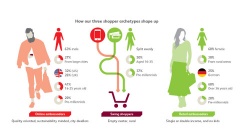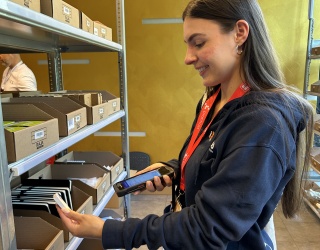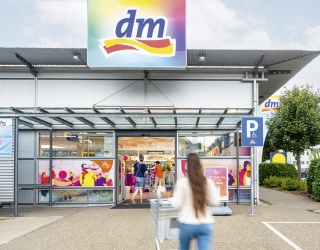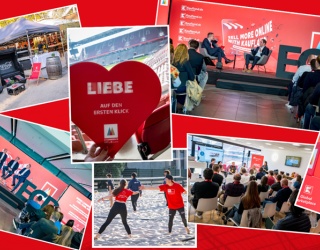
The report, which is based on interviews with 1,000 consumers across Europe and the US, finds it is not Amazon and other online-only businesses that are the biggest threat to the survival and success of physical retailers. A surprising 59% of participants are wedded to neither offline nor online shopping for goods and services, with 32% seeing themselves as fervent defenders of physical shops. Just 9% of those interviewed said that they would abandon physical stores for online retailers.
According to the report, the greatest dangers high street retailers face are firmly under their own control. These are:
- the risk of being too cautious and restrained when it comes to creating dynamic new experiences for their customers;
- the risk of moving more slowly than their customers want in grasping the opportunities that digitization brings.
In reaching its conclusions, the report identifies a critically important “pre-millennial” generation of shoppers that has immense influence over the future of the pan-European retail industry. This group of highly-connected young adults is the first generation to have grown up with the internet as a part of everyday life. Critically, they account for a high proportion of the 59% of pragmatic ‘swing shoppers’, those that have no preference if it is an online-only or a brick-and-mortar retailer.
“Whatever suits best”

"This is a large and powerful group of people who are not affiliated exclusively to either the in-store or the online channel. Rather, they select whatever suits best for any particular transaction. Interestingly, pre-millennials see shopping as a highly social activity, and we recommend that traditional retailers grasp the opportunity to socially engage their customers. More notably, as this group provides little feedback on their expectations on the ideal shopping experience, retailers have to propose new experiences in a language that appeals to them. That means moving fast and decisively to take advantage of digital technology in-store, leveraging on smartphones, customer recognition, social sharing, augmented reality, etc. using everything possible to drive differentiation. In that way, physical stores have an opportunity to reach beyond the online experience to inhabit spaces where pure-play e-commerce companies are unable to thrive. The winning retailers will be the ones who are able to quickly break organizational silos, gain operational agility and bring together all physical, online and mobile channels. Their aim should be to provide a hybrid omni-channel experience, which consistently delivers the principle of ‘whatever suits best", says Bertrand Clémencin, Partner at BearingPoint and author of the report
BearingPoint analysis indicates that creating such a hybrid is the first step in a process of change that will enable retailers to fully take the lead in an ever-changing competitive environment.
Bertrand Clémencin: "Shape the supply chain to match evolving consumer demand, and invest in data analytics to retrieve not just data but real customer insights. Always ensure that the experience you offer is differentiated through innovation and the quality of surprise. Join up the customer experience, the supply chain and delivery channels within an integrated strategy that turns you into a ‘hyper-agile’ retailer. And finally, ensure your sales people are true brand ambassadors."
Source: BearingPoint Institute









